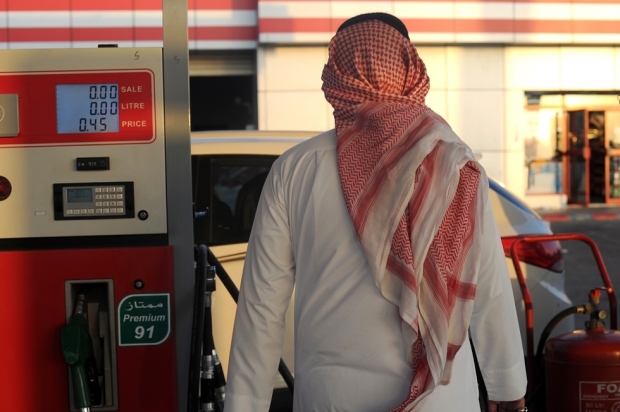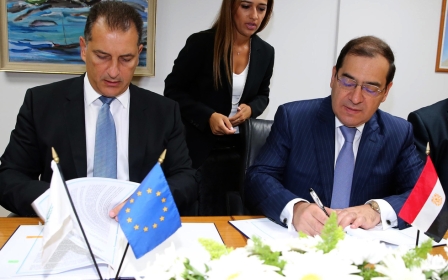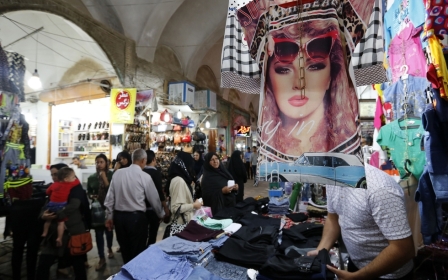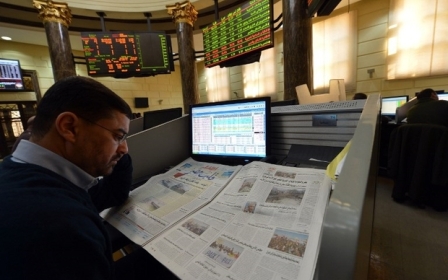Saudi austerity: Nationalisation planned ahead of $35bn mineral hub launch
Saudi Arabia will vote this week on a "nationalisation" plan to give more jobs and contracts to Saudis and reduce dependence on imports and foreign workers amid a huge surge in state investment.
The proposed strategy will create more than 1 million jobs during the next 15 years, according to Abdulrahman al-Rashid, a member of the advisory Shura Council, which will take the decision.
The move will give priority to Saudi contractors for infrastructure projects while all foreign contractors will have to give their Saudi partners a chunk of the profits. Foreign contractors will be have to buy equipment from Saudi manufacturers or from Saudi representatives of international companies.
The announcement comes as King Salman bin Abdulaziz al-Saud launches a $35 billion mineral and mining hub in Ras al-Khair in the oil-rich east of the country on Tuesday as part of huge efforts to diversify the country’s oil-dependent economy.
'The kingdom will be able to become a fierce competitor in the global market'
- Abdulrahman al-Rashid, Shura Council member
Speaking to the Saudi Gazette, al-Rashid said his nationalisation plan “aims to develop a Saudi workforce which is skilled and educated enough to power the wheels of production. It envisages projects to cut down foreign imports and increase national output.”
He proposed the creation of a high commission for the nationalisation programme, with representatives from several ministries including commerce and investment, finance, energy and labour and social development.
“The commission will give priority to Saudi contractors (for infrastructure projects) and all foreign contractors will give their Saudi partners a minimum of 30 percent in profits. Foreign contractors will be obliged to buy equipment from Saudi manufacturers or from Saudi representatives of international companies.
“By empowering and developing local industries by increasing productivity, unifying standards of measurement and regulating prices, the kingdom will be able to become a fierce competitor in the global market."
Saudi Arabia had an unemployment rate of just 5.6 percent in January, but like much of the Arab world suffers from a high youth unemployment rate that stood at 33.5 percent last year. Riyadh has vigorously pursued attempts to indigenise its workforce, reducing its dependence on foreign workers to combat growing rates of unemployment. But it has a long way to go.
Foreigners accounted for 10.1 million of the total population of 30.8 million in 2014, according to the official data. According to the International Labour Organisation, 51.4 percent of the workforce are foreign males, 5.1 percent are foreign females, 33.1 percent are Saudi males and 9.7 percent are Saudi females.
How to diversify your economy
The programme comes amid implementation of Deputy Crown Prince Mohammed bin Salman’s Saudi Vision 2030 agenda, a plan aimed at diversifying Saudi’s 70 percent oil dependent economy.
A series of cost-cutting measures have been implemented in recent months amid an oil price slump.
Last September, cabinet members' salaries were cut by 20 percent, civil servants salaries’ frozen and certain bonuses scrapped. Shura Council members’ allowances were cut by 15 percent.
The austerity biting public servants is taking place side-by-side with huge public investment programs, especially in the Eastern Province, which is home to Saudi Aramco, the country’s national petroleum and gas firm and the world’s most valuable company.
The city did not even exist eight years ago, and was built from scratch
The project in the Ras al-Khair Industrial City has been dubbed the ‘Center of Saudi Mining,’ Ras al-Khair is an essential pillar of the Vision 2030 plan.
The city did not even exist eight years ago, and was built from scratch to better exploit mineral reserves including phosphate, bauxite, copper and uranium.
Saudi Arabia is looking to mining to double its contribution to national GDP to $26 billion by 2020, thereby making it the third pillar of the national economy after petroleum and petrochemicals, according to al-Arabiya.
READ: Libya's oil industry: phoenix or mummy?
The Saudi Gazette reports the industrial city aims to generate mine-to-end product value chains in the mining sector, and 12,000 direct jobs in the process as well as tens of thousands more jobs indirectly.
Key projects in the new industrial city include: a $5.6 billion phosphate complex producing 3 million tons of fertilizer per year; a $10.8 billion integrated aluminium complex with its own refinery, smelter; rolling mill and recycling facilities; a 1,400km rail line connecting the mines to the country’s central and northern regions; and an $800 million port built by the Saudi Ports Authority to act as an export hub.
Saudi Aramco, a key partner in the Ras al-Khair project, will also develop a $5.3 billion ship repair and shipbuilding complex in the city, with construction due to begin in 2018 and production to start in 2022.
New MEE newsletter: Jerusalem Dispatch
Sign up to get the latest insights and analysis on Israel-Palestine, alongside Turkey Unpacked and other MEE newsletters
Middle East Eye delivers independent and unrivalled coverage and analysis of the Middle East, North Africa and beyond. To learn more about republishing this content and the associated fees, please fill out this form. More about MEE can be found here.





